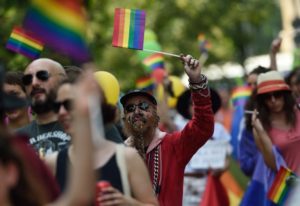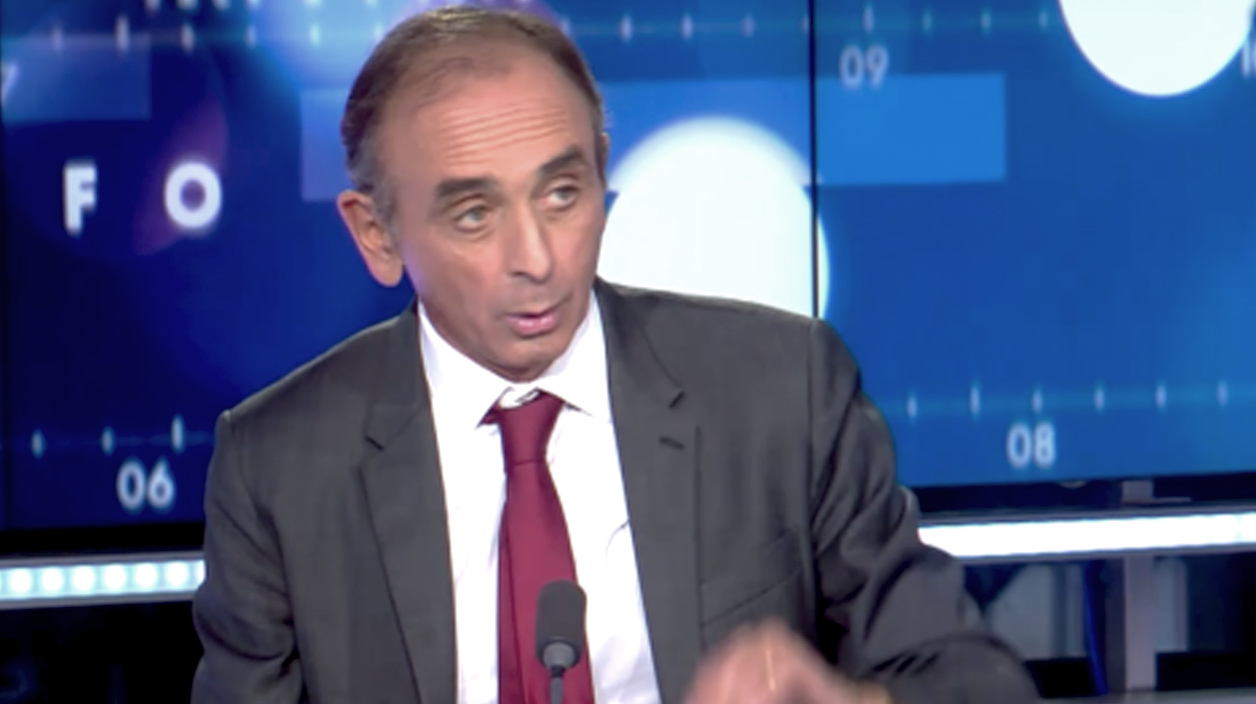>> Bucharest gay pride rally draws crowds
[spacer]
Un millier de personnes ont défilé samedi pour la marche des fiertés de Bucarest, réclamant « des droits égaux pour tous types de familles », sur fond d’une initiative d’associations visant à faire interdire les mariages de même sexe par la Constitution.
La tentative d’amender la loi fondamentale « n’est pas démocratique, et je crois que ce n’est qu’une question de temps pour que la Cour Constitutionnelle donne un avis défavorable à une telle démarche », a déclaré à l’AFP Florin Buhuceanu, de l’association Accept.
Les mariages entre personnes de même sexe sont déjà interdits par le code civil. « La loi ne reconnait pas aujourd’hui tous les types de famille. L’Etat roumain doit offrir une couverture pour chacune d’entre elles, sinon les droits constitutionnels ne sont pas respectés », précise-t-il, soulignant que les couples hétérosexuels vivant hors mariage sont également touchés par cette situation.

La 12e édition du défilé bucarestois a débuté par une minute de silence en mémoire des victimes du massacre homophobe perpétré le 12 juin dernier au Pulse à Orlando.
Le secrétaire d’Etat allemand aux Affaires européennes Michael Roth, l’ambassadeur du Royaume-Uni en Roumanie Paul Brummell ainsi que le chef-adjoint de mission de l’Ambassade des Etats-Unis Dean Thompson ont participé à la manifestation de samedi.
La ministre pour le Dialogue Social Violeta Alexandru était également présente au défilé, une première pour un membre du gouvernement roumain.
« Les progrès se font en donnant des droits égaux à tout le monde, c’est pour cela que je suis là, pour soutenir l’égalité de droits de tous les citoyens (… ) et notamment les mariages LGBT », a confié l’un des participants, Paul Virvea.
L’homosexualité n’a été dépénalisée en Roumanie qu’au début des années 2000. Plus tôt samedi, plusieurs dizaines de personnes avaient participé à une « marche de la normalité », en soutien de la « famille basée sur le mariage entre un homme et une femme », organisée par un petit parti d’extrême droite, Noua Dreapta.
[spacer]
>> Around 1,000 people took to the streets of Bucharest on Saturday for a gay pride march as participants demanded equal rights in a country where same sex marriage remains illegal.
Supporters of Bucharest Pride, an event celebrating diversity and the LGBT community, want to overturn a constitutional ban on same sex unions.
But they face opposition after several NGOs linked to the Orthodox Church and united under the umbrella Coalition for Family last month brought a three million-strong petition to block same-sex unions in the EU member state which defines marriage as the « union between a man and a woman ».
Accept, a group that promotes the rights of the LGBT community, is outraged that « for the time being the law does not recognise all kinds of family, » Accept member Florin Buhuceanu told AFP.
Buhuceanu, adding that the Romanian state should extend constitutional rights to gay couples, said attempts to block change were « non-democratic » and he expected the Constitutional court would ultimately find to that effect.
Parliament will have to verify that the petition Coalition for Family accords with the law and if no irregularities are found Romania will then organise a referendum on the issue.
A minute’s silence in memory of the Orlando shootings preceded Saturday’s march.
The Romanian government for the first time sent a minister to the march, minister for social dialogue, Violeta Alexandru.
Participants brandished rainbow banners and slogans reading « diversity = normality ».
Earlier, several dozen people attended a rival event, « march for normality », by far Right party Noua Dreapta in support of « families based on marriage between a man and a woman ».
Homosexuality in Romania was illegal until 2000, when the country decriminalised it after harsh criticism from the European Union and the Council of Europe.


















